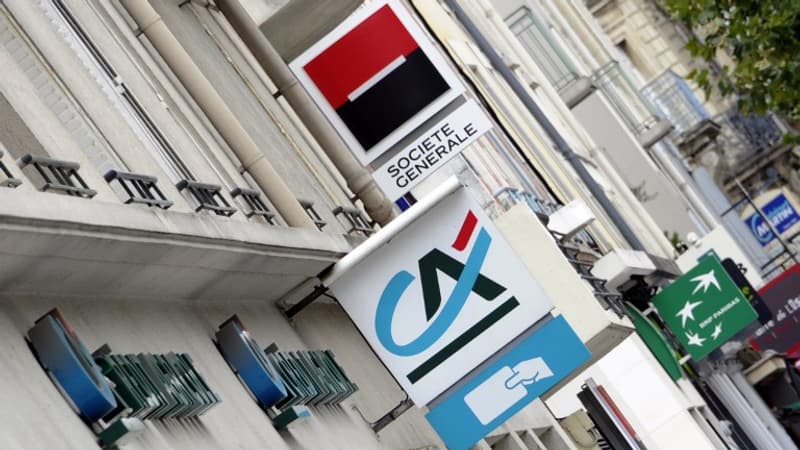Faced with galloping inflation in recent months, the unions of the banking and insurance sectors raise their voices to obtain salary increases higher than those of last year. Not without some success. At the moment, “it’s going rather in the right direction,” said Frédéric Guyonnet, national president of the SNB/CFE-CGC, the leading union in the banking sector.
According to him, the main establishments have proposed increases ranging from 1.5% to 3.5%, much better than at the end of 2021, when the increases ranged from 0.6% for BNP Paribas, to 1% for Crédit Mutual and HSBC. At the time, it was the first time in years that so many banks were granting collective raises.
In plus des hausses de salaires, who entered vigueur au 1er janvier, des primes ont été proposées, visant selon les syndicats à compensate for the part of pouvoir d’achat des derniers mois liée à une inflation à 5.9% sur un an en August. These can reach, for example, 1,500 euros to Macif, which intends to pay all its employees in two installments, before the start of the NAO (mandatory annual negotiations) scheduled for January. In Axa, the negotiations began on Wednesday, earlier than usual, in particular to respond to the inflationary context.
Negotiations underway at Société Générale, soon at Groupama
Counting raises, bonuses, profit sharing, participation and individual raises, which are widespread in the bank, “when you put everything from end to end, it weighs, in fact”, stresses Frédéric Guyonnet. However, some sticking points remain.
At Groupama, a strike broke out on Tuesday, even before the first meeting of the NAO, scheduled for October 18. The union demands increases in line with inflation, while the company has not granted any general increase for ten years and the negotiations at the end of 2021 could not culminate in an agreement. “The general increase principle has been noted,” comments the management, who remembers having already paid a bonus in September that ranges between 400 and 800 euros.
Within the Société Générale group, on the other hand, negotiations have already begun and the SNB, CFDT and CFTC unions together demand “a lasting collective increase for all employees, which should at least compensate for the inflation we are experiencing”. The bank with the red and black logo is under even greater pressure since “it must involve all employees in its project” to merge the Société Générale and Crédit du Nord networks, deciphers Frédéric Guyonnet, judging that “everyone wants to reach a agreement”. . A new meeting on wages will be held on October 3.
Salary increase of just under 3% at BNP Paribas and Caisse d’Epargne
In general, “I would not say that it is tense, but there is still a balance of power that is being formed”, summarizes Thierry Tisserand, national secretary of the CFDT banking and insurance, the first union in insurance and the second among banks.
At BNP Paribas, management offers a 2.9% raise with a minimum of €1,100 a year for all employees earning less than €80,000 a year. It also offered a bonus of 800 euros for salaries of up to three minimum wages and 500 euros for the others. For Rémi Gandon, union representative of the SNB, a union with its own majority in BNP Paribas, the increase should affect all employees and the bonus should be higher to compensate for the loss of purchasing power in recent months.
In the Caisses d’Epargne, the management has proposed a rise of 2.8%, with a minimum of 1,000 euros per year. A level considered insufficient by three unions of the Caisse d’Epargne Midi-Pyrénées (CGT, FO and South), which went on strike on Thursday. In addition to the issue of wages, it was also about requesting the opening of negotiations on working methods and conditions. To respond to dissatisfaction, management decided to move up the NAO dedicated to the regional fund to October 6, when it was traditionally held in December, an FO representative said.
Source: BFM TV


